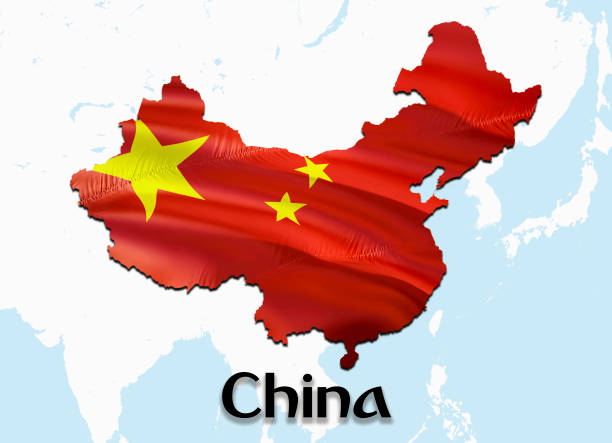Introduction
In the vast and ever-evolving landscape of the Chinese internet, one term has gained significant traction in recent years: 吃瓜 (chī guā). Literally translated, it means “eating melon,” but its figurative meaning runs much deeper. 吃瓜 is a colloquial expression used to describe the act of passively observing or engaging in gossip, often related to the latest scandals, celebrity news, or viral online controversies. This cultural phenomenon has led to the creation of 吃瓜网 (Chī Guā Wǎng), an informal network of platforms, forums, and social media communities dedicated to the consumption and discussion of gossip.
This article delves into the origins, evolution, and societal impact of 吃瓜网, exploring how it has become a central part of China’s digital culture.
The Origins of 吃瓜
To understand 吃瓜网, it’s essential to first grasp the concept of 吃瓜 itself. The term originated from the phrase 吃瓜群众 (chī guā qúnzhòng), which refers to the “melon-eating masses”—those who watch events unfold without directly participating. This metaphorical “melon” represents juicy gossip or scandalous news that the masses consume for entertainment.
The phrase gained popularity on Chinese social media platforms like Weibo, where users would often comment on trending topics with the phrase “我只是个吃瓜群众” (Wǒ zhǐ shì gè chī guā qúnzhòng), meaning “I’m just an onlooker.” This expression captured the collective behavior of netizens who, while not involved in the events themselves, were keenly interested in the latest buzz.
The Emergence of 吃瓜网
As the concept of 吃瓜 became more ingrained in Chinese internet culture, it gave rise to 吃瓜网—a loose term for the various online spaces where this behavior is most prominent. 吃瓜网 isn’t a single website but rather a network of online communities, social media accounts, and content platforms where gossip, rumors, and scandals are shared and discussed.
Weibo, China’s equivalent of Twitter, is one of the most popular platforms associated with 吃瓜网. With millions of active users, Weibo serves as a hub for viral content, where users can quickly spread rumors, share opinions, and engage in heated discussions about the latest controversies. WeChat, China’s ubiquitous messaging app, also plays a significant role, with public accounts and group chats often being the first places where gossip is circulated.
In addition to these mainstream platforms, specialized forums and websites have also emerged, catering specifically to the 吃瓜 crowd. These include gossip-centric websites like Tianya Club and Douban, where users can find and share information on everything from celebrity scandals to government corruption.
The Role of 吃瓜网 in Chinese Society
吃瓜网 has become more than just a source of entertainment; it has evolved into a significant cultural force in Chinese society. The collective consumption of gossip serves several purposes, both for individuals and for society at large.
- Entertainment and Escapism: At its core, 吃瓜 is about entertainment. In a society where the pressures of work, family, and social obligations are ever-present, gossip provides a form of escapism. The thrill of discovering the latest scandal, the satisfaction of speculating about the lives of others, and the communal experience of sharing this information with others offer a temporary reprieve from the stresses of daily life.
- Social Commentary: While 吃瓜 is often dismissed as trivial, it can also serve as a form of social commentary. Through the discussion of gossip, netizens can express their views on broader social issues, such as inequality, corruption, or the behavior of public figures. In this way, 吃瓜网 can act as a barometer of public opinion, reflecting the values, concerns, and frustrations of Chinese society.
- Collective Identity: The act of 吃瓜 also fosters a sense of collective identity among Chinese netizens. By engaging in these discussions, individuals become part of a larger community, united by their shared interest in the latest gossip. This collective experience can create a sense of belonging, especially in the context of China’s rapidly changing and increasingly digital society.
The Dark Side of 吃瓜网
Despite its popularity, 吃瓜网 is not without its controversies and criticisms. The spread of gossip and rumors can have serious consequences, both for individuals and for society as a whole.
- Misinformation and Rumors: One of the most significant issues with 吃瓜网 is the rapid spread of misinformation. In the race to be the first to share the latest scoop, accuracy often takes a backseat to speed. This can lead to the spread of false information, which can damage reputations, fuel public panic, or even result in legal consequences. The anonymity of the internet exacerbates this problem, as users feel emboldened to share unverified or sensationalized information without fear of repercussions.
- Cyberbullying: 吃瓜网 can also be a breeding ground for cyberbullying. Public figures, celebrities, and even ordinary individuals can find themselves the target of online harassment and abuse, often based on unfounded rumors or personal attacks. The collective nature of 吃瓜 means that such behavior can quickly escalate, with large groups of netizens piling on to criticize or ridicule their chosen target.
- Invasion of Privacy: The voracious appetite for gossip on 吃瓜网 can also lead to serious invasions of privacy. The lives of public figures are often scrutinized in minute detail, with every aspect of their personal lives becoming fodder for discussion. In some cases, this extends to ordinary individuals who find themselves inadvertently thrust into the spotlight due to a viral video or a controversial post. The impact on these individuals’ lives can be devastating, leading to mental health issues, social ostracization, or even legal trouble.
The Future of 吃瓜网

As China’s internet landscape continues to evolve, so too will the culture of 吃瓜. The rise of short video platforms like Douyin (the Chinese version of TikTok) and Kuaishou has introduced new avenues for gossip to spread, with viral videos and livestreams becoming increasingly popular sources of 吃瓜 content. At the same time, the Chinese government has taken steps to regulate online content, cracking down on the spread of rumors and misinformation through new laws and increased censorship.
Despite these challenges, it’s unlikely that the culture of 吃瓜 will disappear anytime soon. As long as there are scandals to discuss and controversies to dissect, 吃瓜网 will continue to thrive, reflecting the ever-changing dynamics of Chinese society.
Conclusion
吃瓜网 is more than just a collection of gossip websites and social media accounts; it is a reflection of the collective psyche of China’s netizens. Through the act of 吃瓜, millions of people come together to share in the latest scandals, express their opinions, and engage in a form of social commentary that, while often dismissed as frivolous, plays a significant role in shaping public discourse.
As with any cultural phenomenon, 吃瓜网 has its positives and negatives. While it provides entertainment and a sense of community, it also has the potential to spread misinformation, fuel cyberbullying, and invade the privacy of individuals. As such, it is important for both users and regulators to navigate the complexities of 吃瓜网 with care, ensuring that this digital culture continues to evolve in a way that is both responsible and reflective of the values of Chinese society.





